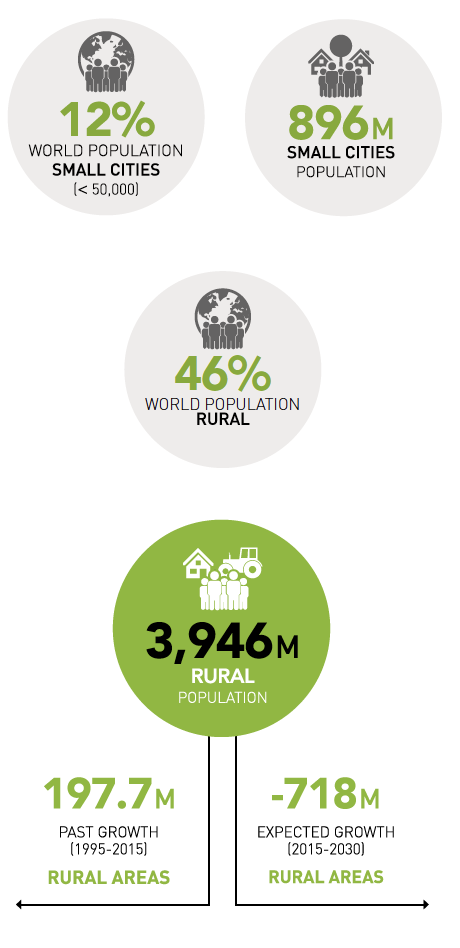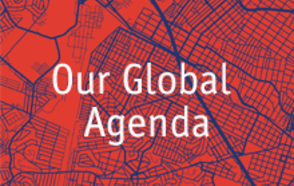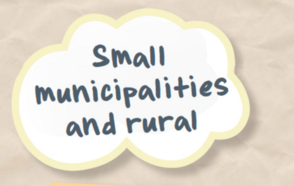Territories: regions, rural areas and small municipalities
 Small towns include any urban centre with fewer than 50,000 inhabitants.
Small towns include any urban centre with fewer than 50,000 inhabitants.
Regions accross the world are defined according to their level of government, i.e. and by their capacity to implement autonomous policies and deliver public goods
The agenda for regions, rural areas and small municipalities
 Regional governments play a crucial role in balancing territories, linking urban, peri-urban and rural areas and promoting social cohesion and endogenous equitable development.
Regional governments play a crucial role in balancing territories, linking urban, peri-urban and rural areas and promoting social cohesion and endogenous equitable development.
 Urban settlements are not isolated units. They are embedded in territorial spaces and are part of territorial systems.
Urban settlements are not isolated units. They are embedded in territorial spaces and are part of territorial systems.
 Integrated regional strategies can create a pathway towards more sustainable, inclusive and efficient development
Integrated regional strategies can create a pathway towards more sustainable, inclusive and efficient development
 An enabling environment in which regional and local governments can experiment, innovate and capitalize on their resources i
An enabling environment in which regional and local governments can experiment, innovate and capitalize on their resources i
 Multilevel governance calls for a paradigmatic shift in the relationship between different levels of government
Multilevel governance calls for a paradigmatic shift in the relationship between different levels of government
 Collaborative governance and cooperation should also be encouraged between regions, between regions and local governments, and between small towns
Collaborative governance and cooperation should also be encouraged between regions, between regions and local governments, and between small towns
 Integrated regional and local strategic plans need strong participation and involvement of territorial networks and local stakeholders.
Integrated regional and local strategic plans need strong participation and involvement of territorial networks and local stakeholders.
 A territorial approach to development helps capitalize on local and regional potentialities
A territorial approach to development helps capitalize on local and regional potentialities
 Regions can be the appropriate scale to deal with key trunk infrastructures and services to improve connectivity, strengthening territorial integration and balance p
Regions can be the appropriate scale to deal with key trunk infrastructures and services to improve connectivity, strengthening territorial integration and balance p
 Integrated territorial development is equally critical to support environmental sustainability
Integrated territorial development is equally critical to support environmental sustainability














